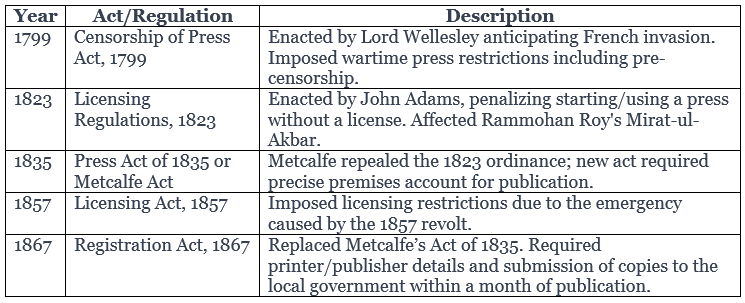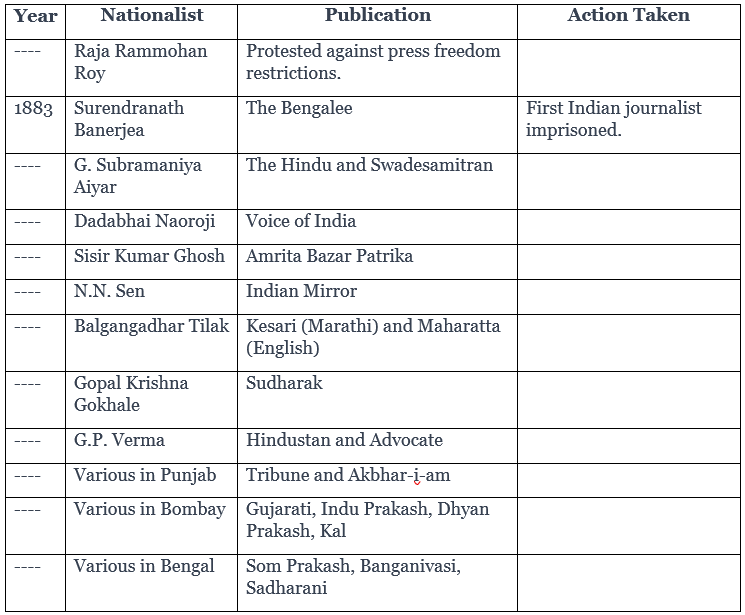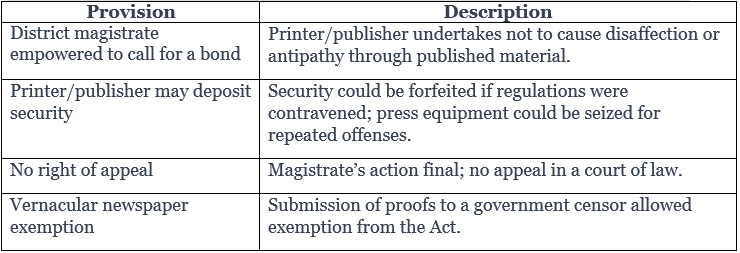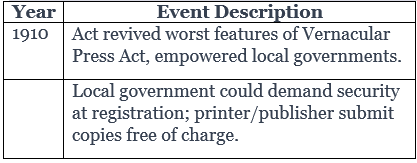Cheat Sheet: Development of Indian Press | History for UPSC CSE PDF Download
Introduction
The evolution of press freedom in India is marked by a series of regulations and acts that reflect the socio-political context of the time. From the inception of the first newspaper in India by James Augustus Hickey in 1780 to the challenges faced by early nationalists, the struggle for press freedom was evident. This chronology document outlines key events and regulations affecting the Indian press, highlighting the journey from censorship to the eventual repeal of restrictive acts.
Early Newspapers in India

Early Regulations on Press

Struggle for Press Freedom by Early Nationalists
Early Regulations on Press



Vernacular Press Act, 1878

Newspaper (Incitement to Offences) Act, 1908

Indian Press Act, 1910

Press Acts During and After the World Wars
Indian Press (Emergency Powers) Act, 1931
Press Restrictions During the Second World War
Conclusion
The journey of press freedom in India has witnessed a dynamic interplay of regulations and resistance. From early restrictions under British rule to the eventual repeal of oppressive acts, the Indian press has evolved as a resilient force. The struggle led by early nationalists and the subsequent repeals in the post-World War era mark significant milestones in the quest for a free and vibrant press in India.
|
110 videos|653 docs|168 tests
|
FAQs on Cheat Sheet: Development of Indian Press - History for UPSC CSE
| 1. What were the early regulations on the press in India? |  |
| 2. What was the Vernacular Press Act of 1878? |  |
| 3. What was the Indian Press (Emergency Powers) Act of 1931? |  |
| 4. How did the press face restrictions during the Second World War in India? |  |
| 5. How did the struggle for press freedom by early nationalists impact the development of the Indian press? |  |



















